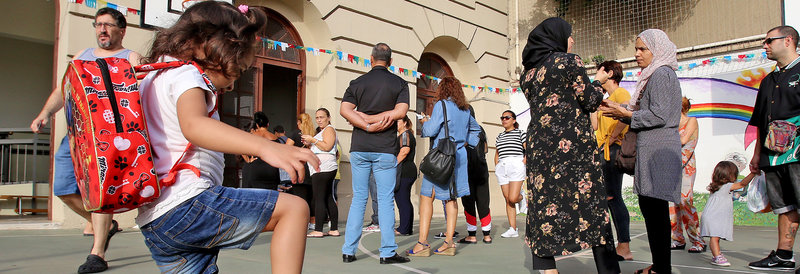THE CULTURAL TIGHTROPE
Reasonable expectations
I was recently having a chat with an acquaintance from another country who mentioned she was in a parents’ Whatsapp group for her child’s school and at the beginning the Catalan parents had made a big effort to put messages in Spanish as well as Catalan while still communicating mainly in their native tongue. The same was true of their meetings outside the school gates — the conversation was in Catalan unless she was directly addressed, in which case they would change to Spanish before reverting to Catalan. I told her I had experienced the same thing when my son was growing up, and what had always surprised me was non-Catalans expecting Catalan parents to change their language of communication from their native tongue to Spanish, essentially an imposed language for many of them, as a matter of course rather than what it actually was, an effort. My acquaintance shared my belief and acknowledged the effort the other parents had made, at least at the beginning, to integrate her into the group, whether in conversation or in the chat group.
It led me to again consider just what a singular situation we live in here and people’s attitudes towards it. I move in many social and professional circles in Catalonia, and I have found that the prevailing attitude of those not born here is that Catalans should adapt and speak Spanish when non-Catalans are present, viewing the issue solely as one of courtesy and completely ignoring the fact that this is a situation you rarely find in other places. I often ask non-Catalans when this arises, “How would you feel if you had to speak a language other than your own with your own people in your own country, and on top of that change to a language you see as one of repression, that was imposed upon your parents and grandparents by a dictatorial regime for most of their lives?” Of course, it’s not a question people can readily answer, having never been exposed to those circumstances, but I believe they should at least consider what it might be like to feel that. The general response is that people here are bilingual and communicating in Spanish is therefore as easy for Catalans as communicating in Catalan. Well first of all that’s not true, Spanish being more of a challenge for those raised in purely Catalan-speaking families, and secondly it completely ignores the emotional factor of being forced to ditch your own mother tongue for one you may be able to speak, but may also be reticent to.
As far as my acquaintance was concerned, she appreciated the effort that was made initially and thought it was her responsibility to now learn enough Catalan to at least follow the conversation and then interject in Spanish, which is not her mother tongue either. That way it is the individual non-native who is adapting rather than the group of natives, and to be perfectly honest, that makes a lot more sense to me than complaining because you don’t understand the language of the country you have decided to make your home, even if only temporarily.


